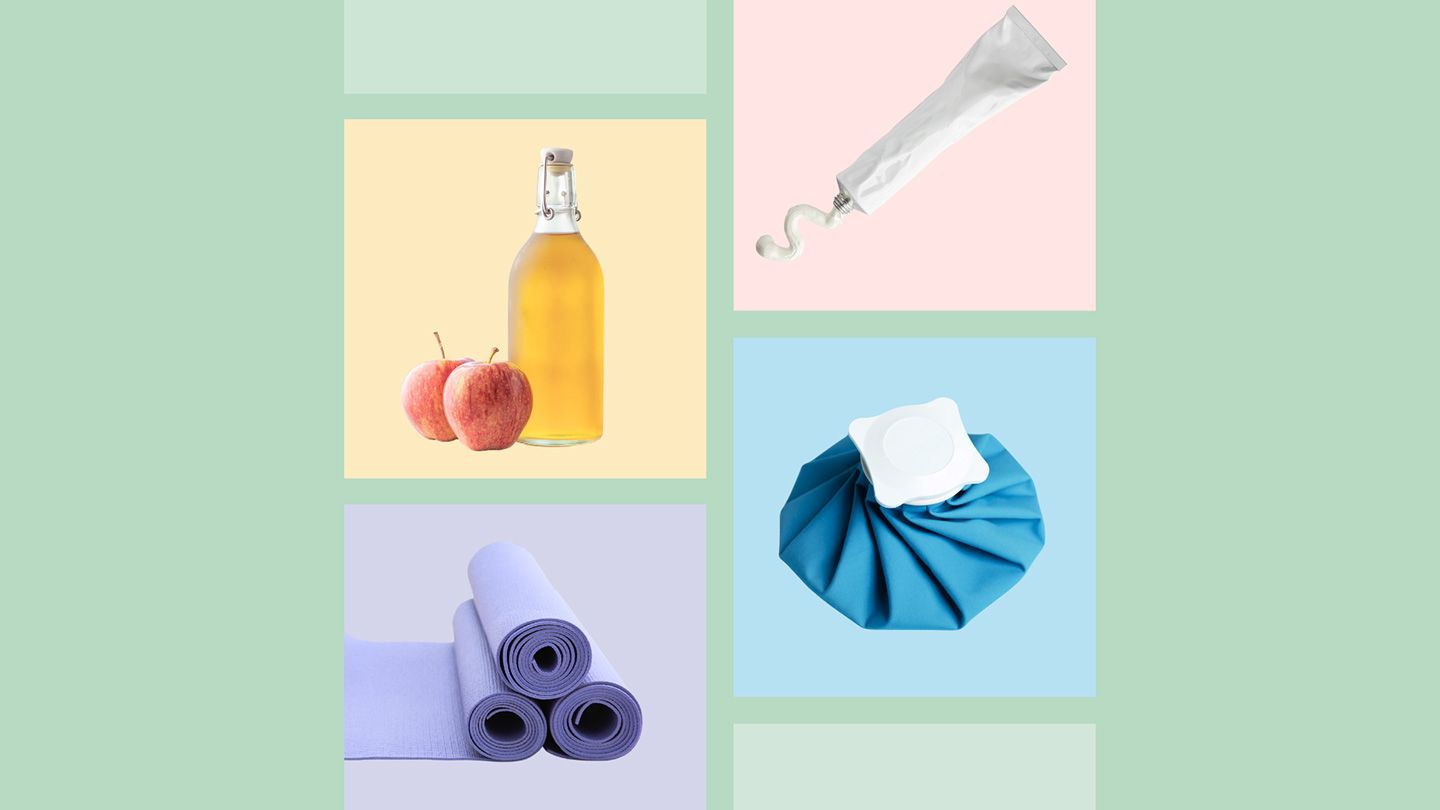1. Moisturize to the Max
Keeping your skin moist is extremely important, says Dr. Yosipovitch, because moisture reduces redness and allows your skin to heal. For itch relief, thick moisturizers containing oils or petroleum jelly are better than thin, watery lotions. Cooking oil or shortening can also sub for drugstore moisturizers, at a much lower price. Apply prescription topicals, then moisturizer, right after your bath or shower to lock in natural skin oils. Bonus tip: Keep your creams in the fridge for a cooling effect.
2. Soften Stubborn Scales
“Minimizing scaling and flaking can have an anti-itch effect as well,” Yosipovitch says. Salicylic acid is a good keratolytic, or peeling agent, to try. As a topical applied to skin, it softens and lifts the scales that can cause lesions to feel itchy. But beware of products that contain high concentrations of salicylic acid. Current guidelines from the American Academy of Dermatology and the National Psoriasis Foundation recommend a 6 percent formulation; anything higher may be too irritating for psoriasis. Other keratolytic ingredients to look for in skin-care products include lactic acid and urea.
3. Soothe With Apple Cider Vinegar
4. Consider Hot and Cold for Itch Relief
5. Assess Acupuncture
Acupuncture works for some types of itchiness, and psoriasis seems to be one of them, according to Yosipovitch. That said, more scientific evidence is needed before dermatologists can say for sure that acupuncture is an effective treatment.
6. Say Yes to Yoga
7. Opt for Occlusion Therapy
Occlusion therapy involves slathering on skin products, such as moisturizers or prescription topicals, and holding them in place for long periods of time by wrapping each area you treat with plastic wrap or large adhesive bandages. This can help lock in moisture and allow medication to penetrate more deeply, providing more itch relief.
Some people do this while they sleep because it can feel uncomfortable and hot when you’re out and about during the day. Talk with your doctor before using a steroid or any prescription medication as part of occlusion therapy, and ask for pointers to get the most from this approach.
The Takeaway
- Itchiness affects 80 percent of people with psoriasis, and up to 90 percent of them say it negatively affects their quality of life — but you can reduce its impact using certain proven treatments.
- Keeping your skin moisturized, softening plaque scales, and using hot and cold therapies to dampen nerve signaling can all lessen the itch.
- Complementary therapies, such as acupuncture and yoga, may indirectly improve symptoms as well.
Read the full article here




